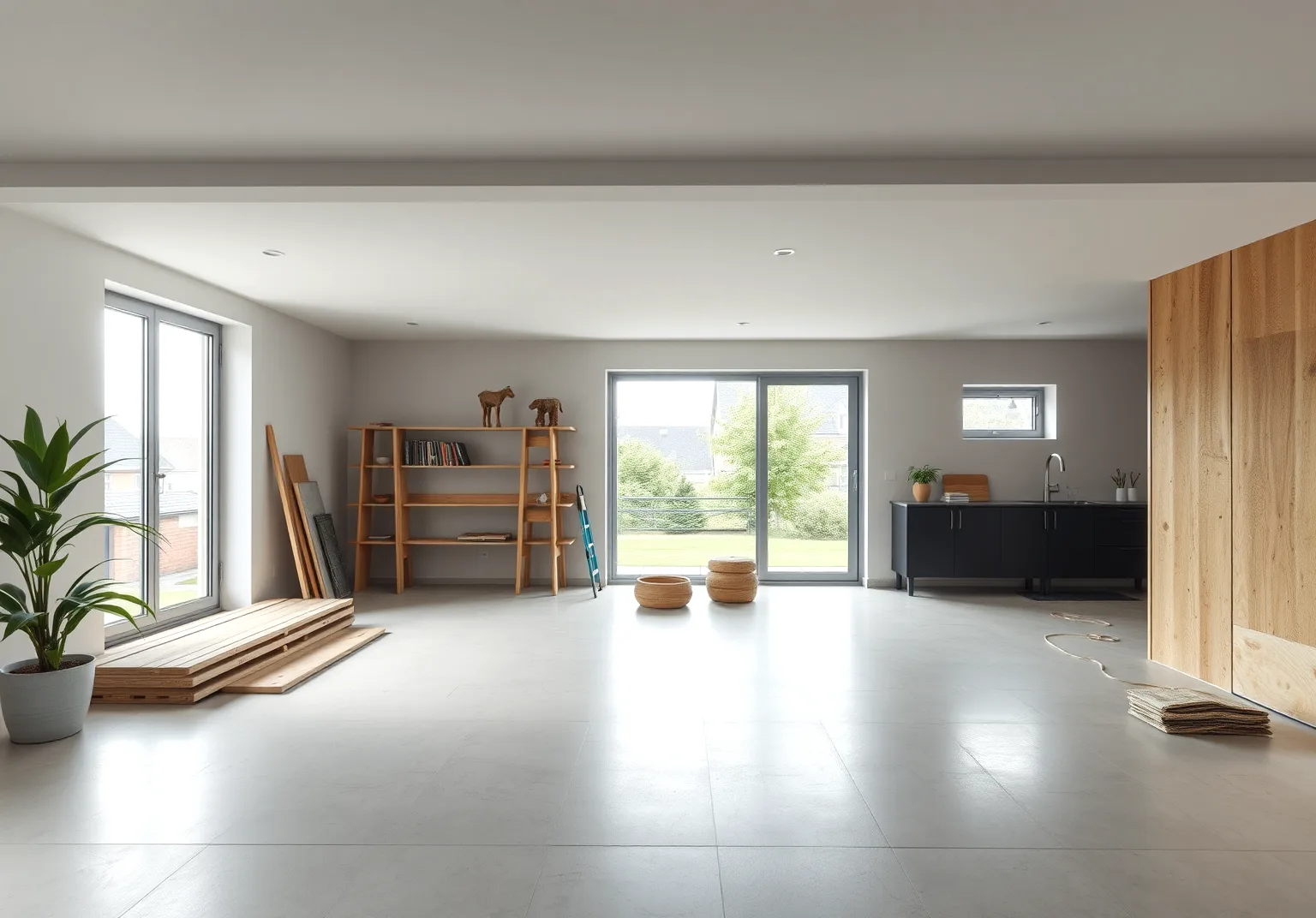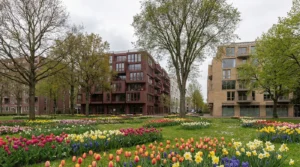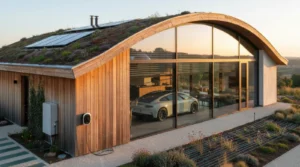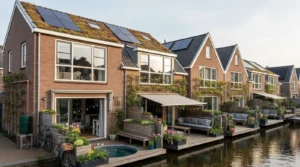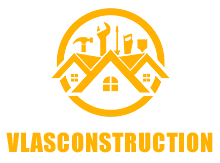Avoid Costly Mistakes: The Importance of Home Maintenance in the Netherlands
Introduction
Maintaining a home in the Netherlands is crucial for preserving its value, ensuring safety, and avoiding costly repairs. Whether you are a long-time resident or a new homeowner, understanding the importance of regular maintenance and the specifics of home renovation in the Netherlands can make a significant difference. This article will guide you through the key aspects of home maintenance, renovation regulations, and best practices to keep your home in top condition.
Basic Concepts
Before diving into the details, it’s essential to understand some basic concepts related to home maintenance and renovation in the Netherlands.
- Building Regulations: Familiarize yourself with local housing regulations, which can vary depending on the type of renovation and the location of your property. Permits such as the building permit (Omgevingsvergunning voor bouwen), environmental permit (Omgevingsvergunning voor milieu), and monument permit (Monumentenvergunning) may be required.
- Sustainability: The Netherlands emphasizes sustainability in home renovations. This includes using energy-efficient systems, renewable energy sources, and materials that reduce the carbon footprint of your home.
- Contractor Selection: Choosing the right contractor is vital. Look for professionals with good reputations, strong reviews, and the ability to communicate effectively in a language you understand.
Understanding Dutch Housing Regulations
Building Permits
- Building Permit (Omgevingsvergunning voor bouwen): Required for structural alterations, additions, or demolitions that affect the external appearance or load-bearing structure of the building. This includes major renovations, extensions, and changes to the roofline.
- Environmental Permit (Omgevingsvergunning voor milieu): Necessary for activities that may have environmental implications, such as installing heating systems, air conditioning units, or solar panels.
- Monument Permit (Monumentenvergunning): If your property is a designated monument, additional permits may be needed to ensure compliance with heritage preservation regulations.
Spatial Planning Permit
- This permit is required for projects that affect the spatial planning of the area. It ensures that your renovation complies with local zoning laws and urban development plans.
Finding Reliable Contractors
Research and Reviews
- Use platforms like Trustoo.nl to find professionals with good reputations and strong reviews from previous clients. This can give you confidence in your choice and ensure you are hiring someone trustworthy.
- Ask for recommendations from friends, family, or colleagues who have undergone similar projects. Online reviews can also provide valuable insights.
Language and Communication
- Communication is key to any successful renovation project. Find a contractor who speaks English or a language you are comfortable with. Many professionals in the Netherlands are multilingual.
Quotes and Contracts
- Always ask for detailed quotes that include a breakdown of costs, timelines, materials, and labor. Ensure that contracts are in place before work begins to set clear expectations and protect you in case of disputes.
Planning and Budgeting
Setting a Realistic Budget
- Renovating a home in the Netherlands can be more expensive than expected. Set a realistic budget that includes a contingency fund for unexpected costs. Keep regular tabs on spending and communicate with your contractor about the financial aspects of the project.
Government Incentives and Subsidies
- The Dutch government offers various incentives and subsidies to encourage energy-efficient renovations and sustainable building practices. These can include grants, tax incentives, or low-interest loans for energy-saving measures such as insulation upgrades, heating system replacements, and renewable energy installations.
Practical Tips for Home Maintenance
Annual Maintenance
- Hot Water Boiler Check: Let a professional check the hot water boiler annually to ensure it is functioning efficiently and safely.
- Clean Rain Gutters: Clean the rain gutters to prevent water damage and ensure proper drainage.
- Ventilation Unit Maintenance: Clean the ventilation unit, including the valves, to maintain good indoor air quality.
- Fire and Smoke Detectors: Renew the batteries in fire and smoke detectors to ensure your home remains safe.
Every Few Years
- Painting Wood: Paint wooden windows and doors every 5-7 years. Also, check the sealant between the glass and window cases and replace the rubbers if necessary[5].
- Air Duct Cleaning: Professionally clean the air ducts to improve air quality and efficiency of your heating and cooling systems.
- Sealant Replacement: Renew the sealant in the bathroom and kitchen to prevent leakage.
After 10-15 Years
- Fire Detectors and Hot Water Boiler: Replace fire detectors and the hot water boiler with new, energy-efficient systems.
- Ventilation System: Replace the ventilation system to improve energy efficiency and reduce costs.
Trends in Construction and Renovation
Sustainability and Energy Efficiency
- Replacing old heating systems with modern, energy-efficient alternatives such as high-efficiency condensing boilers, heat pumps, or district heating systems is a priority in Dutch home renovations.
- Incorporating renewable energy generation technologies like solar panels is popular among Dutch homeowners to reduce reliance on fossil fuels and lower carbon footprints.
Dutch Interior Design
- While Dutch interior design tends to be minimalist, there is also an appreciation for bold accents and statement pieces. Consider adding colorful artwork, statement lighting fixtures, and design furniture to add personality and visual interest to your living spaces.
Using Trustoo.nl to Find Experts
- Search for Professionals: Use Trustoo.nl to search for professionals such as plumbers, electricians, and general contractors recommended by other users[1].
- Compare Services: Compare various service providers based on their qualifications, customer reviews, and prices.
- Contact Directly: Contact the contractor directly through the platform to discuss your project and get a detailed quote.
Conclusion
Maintaining and renovating a home in the Netherlands requires careful planning, adherence to local regulations, and the right professional assistance. By understanding the importance of regular maintenance, selecting reliable contractors, and leveraging government incentives, you can ensure your home remains safe, energy-efficient, and valuable. Whether you are undertaking minor repairs or major renovations, following these guidelines will help you avoid costly mistakes and keep your home in top condition.
Summary of Key Points
- Understand Local Regulations: Familiarize yourself with building permits, environmental permits, and monument permits.
- Find Reliable Contractors: Use platforms like Trustoo.nl and ask for recommendations.
- Plan and Budget: Set a realistic budget and take advantage of government incentives.
- Regular Maintenance: Perform annual, bi-annual, and long-term maintenance tasks to prevent costly repairs.
- Sustainability and Energy Efficiency: Incorporate energy-efficient systems and renewable energy sources into your renovation projects.
By following these steps, you can ensure that your home in the Netherlands remains a comfortable, safe, and valuable investment for years to come.

